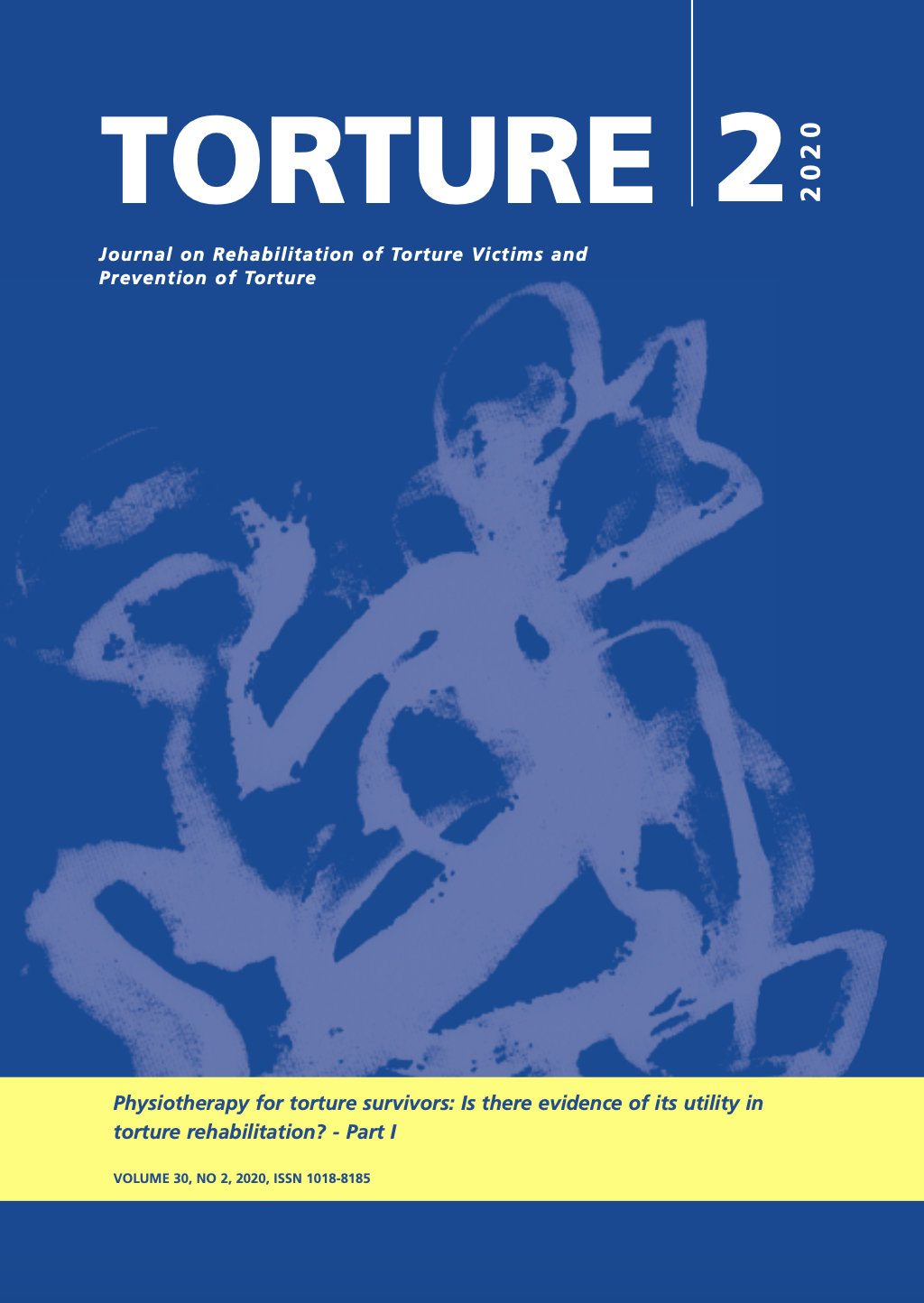The risk of sanctions following visits by monitoring bodies; a study conducted in Albania and Honduras
DOI:
https://doi.org/10.7146/torture.v30i2.120079Keywords:
Reprisals, Sanctions, Prison Monitoring, Albania, HondurasAbstract
Introduction: Independent monitoring of places of detention is considered an effective way of preventing torture, but some reports have shown that detainees may face reprisals after engaging with monitors.This pilot study aims to further investigate the nature and the extent of such reprisals.
Methods: A cross-sectional survey among male prisoners in 4 prisons in Albania and 4 in Honduras was carried out using an interviewer-administered, structured questionnaire and collecting additional narrative comments. Strict ethical guidelines were followed, and follow-up visits took place to detect any sanctions following participation in the study.
Results: 170 detainees were invited to participate of whom 164 accepted. Most were aware of monitoring visits and found them helpful. More than one-third reported that au- thorities had made special arrangements like cleaning and painting prior to the monitoring visits, and 34% of participants in Albania and 12% in Honduras had felt pressured to act in a specific way towards the monitors. One- fifth had experienced sanctions after the last monitoring visit, most often threats and humiliations. During the follow-up visits, the interviewees reported no incidents following their participation in the study.
Discussion: This pilot study has shown that it is possible to collect information about detainees’ experience with monitoring visits through interviews while they are still detained. The fact that reprisals are reported prior to and following monitoring visits points to the need of improving monitoring methodology to further lower the risk. Further research is needed to better understand the dynamics of the sanctions taking place with the aim of reaching a deeper understanding of potential preventive measures.
References
Albania | World Prison Brief. (2019). https://www.prisonstudies.org/country/albania
Amnesty International. (2008). Mauritania:Torture at the heart of the state. https://www.refworld.org/docid/49365b2026.html
APT. (2012). Mitigating the risks of Sanctions related to Detention Monitoring. Association for the Prevention of Torture. Geneva. https://www.apt.ch/content/files_res/Briefing4_en.pdf
Carver, R., & Handley, L. (Eds.). (2016). Does torture prevention work? Liverpool: Liverpool University Press.
European Committee for the Prevention of Torture. (2015). 24th General Report of the CPT. Council of Europe.
Honduras | World Prison Brief. (2019). https://www.prisonstudies.org/country/honduras
OHCHR. (n.d.). National Preventive Mechanisms. https://www.ohchr.org/EN/HRBodies/OPCAT/Pages/NationalPreventiveMechanisms.aspx
OHCHR. (2010, February 10). Report on the visit of the Subcommittee on Prevention of Torture and Other Cruel, Inhuman or Degrading Treatment or Punishment to Honduras. https://tbinternet.ohchr.org/_layouts/15/treatybodyexternal/Download.aspx?symbolno=CAT%2fOP%2fHND%2f1&Lan g=en
OHCHR. (2012, June 7). Considerations of reports submitted by States parties under article 19 or the Convention—Concluding observations of the Committtee against Torture, Albania. https://tbinternet.ohchr.org/_layouts/15/treatybodyexternal/Download.aspx?symbolno=CAT%2fC%2fALB%2fCO%2f2&Lang=en
OHCHR. (2016, August 26). Concluding observations on the second periodic report of Honduras*. https://tbinternet.ohchr.org/_layouts/15/treatybodyexternal/Download.aspx?symbolno=CAT%2fC%2fHND%2fCO%2f2&Lang=en
UNDP. (n.d.). Human Development Reports: Table 1. Human Development Index and its components. http://hdr.undp.org/en/composite/HDI
UNHCR. (2018, May 24). Refworld | Report to the Albanian Government on the visit to Albania carried out by the European Committee for the Prevention of Torture and Inhuman or Degrading Treatment or Punishment (CPT). https://www.refworld.org/docid/5b0681334.html
WMA. (2013). World Medical Association Declaration of Helsinki: Ethical Principles for Medical Research Involving Human Subjects. JAMA, 310(20), 2191. https://doi.org/10.1001/jama.2013.281053
Downloads
Published
How to Cite
Issue
Section
License
We accept that some authors (e.g. government employees in some countries) are unable to transfer copyright. The Creative Commons Licence Attribution-NonCommercial-NoDerivatives 4.0 International (CC BY-NC-ND 4.0) covers both the Torture Journal and the IRCT web site. The publisher will not put any limitation on the personal freedom of the author to use material contained in the paper in other works which may be published, provided that acknowledgement is made to the original place of publication.


